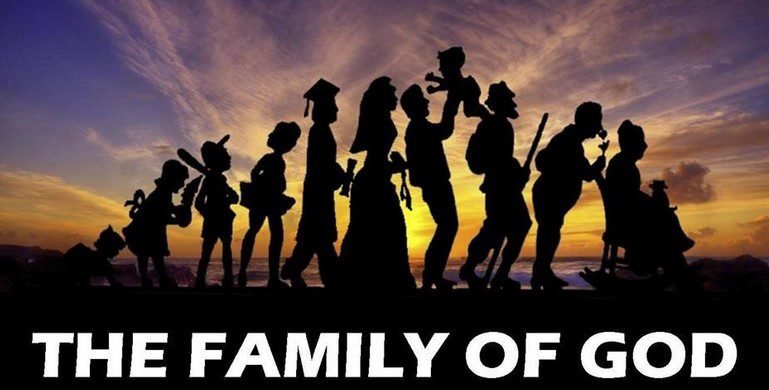
My partner, Polly, and I will celebrate our forty-sixth wedding anniversary in July. Not a match made in Heaven or Hell, our marriage is based on love, commitment, and devotion to Cincinnati Reds baseball. Before getting married, we talked extensively about having children. Both of us wanted children — one boy and one girl. We desired the perfect family: Bruce, Polly, and two children named Jason and Bethany. Jason will soon turn forty-five and Bethany will turn thirty-five in September. We didn’t, however, stop at two children. Driven by our sincere belief that God wanted us to have a big family — a quiverful of children — we had four more children: Nathan, Jaime, Laura, and Josiah. We planned to have even more children, but Polly’s obstetrician warned us after the birth of Josiah that any further pregnancies and births could lead to her death. Polly struggled with her last pregnancy and had difficulties giving birth. Her doctor said, “Polly’s too pooped to pop.” His dire assessment of our prospects for future children left us wondering whether we should listen to his advice or “trust God” — he alone who opens and closes wombs. We put our faith in the obstetrician’s advice, ending our plan to have as many children as God gave us. Were we weak, unable to trust God? Were we lacking in faith? Probably, but it seemed to us, at the time, that reason, wisdom, and common sense dictated we kill the proverbial rabbit. We returned to using birth control until Polly had a tubal ligation in the late 1990s.
Family matters to us. We live where we do today because our six children and sixteen grandchildren live nearby. If they didn’t, we would not live in rural northwest Ohio. This area’s political, religious, and social climate is not a good fit for us as liberal/progressive atheists. If we had our druthers, we would move to a rural fishing community on the eastern seaboard or a progressive community such as Austin, Texas. Australia, New Zealand, or Fiji would be nice too. 🙂 No moves are forthcoming, except the one to the oven at the local crematorium. Seventeen years ago, we purchased our home in Ney, knowing that this would be the end of the road for us.
Two years after Polly and I married, we decided to become foster parents. Our first foster child was a toddler named J.R. — the son of two drug addicts. J.R.’s dad was in prison at the time. Over the next decade, we welcomed into our home nine other children — some of whom were teenage court referrals. We also fostered a teen girl named Irene for a year who wasn’t an official placement. Her family attended our church and needed help, so we offered to let their daughter live with us.
We treated our foster children just as our own. They were a part of our family, and we treated them as such. Unfortunately, Polly’s mom took a different approach, making it clear that blood is what made us family, and since these children were not blood, she had no obligation to treat them as her “real” grandchildren. She would continue this behavior with our step-grandchildren, going so far as to not buy them gifts for their birthdays, or she would buy them different Christmas gifts from those she bought her real grandbabies. I suspect you can imagine how much heartache and disappointment her horrible behavior caused. We made it clear to her that we treated all our grandchildren the same way. We made no distinction between them based on DNA. If our grandchildren know anything about Nana and Grandpa it is this: we love them regardless of who provided the egg and sperm that brought them to life.
Polly and I have five step-grandchildren. There has never been a time when we treated them differently from our blood grandchildren. We know that blended families can be challenging, so we don’t want our step-grandchildren to feel anything other than welcomed and loved.
As our children have married, divorced, and remarried, new grandchildren have come into our lives. Polly and I are proud to call all of them family. You see, it is not blood that determines family. Two years ago, I learned that my biological father was not the man who raised me. Did this suddenly mean that Dad was no longer my father? Of course not. My sperm donor played no part in my life, dying before I could meet him. He is an interesting side note to my story, but Robert Gerencser — good, bad, and indifferent — was my real father. Not one drop of his blood flows through my veins. Should this matter? Of course not. Family is what matters, regardless of our biology. Our grandchildren — all sixteen of them — can count on us to be there for them. We will NEVER give preferential treatment to them based on DNA.
Bruce Gerencser, 68, lives in rural Northwest Ohio with his wife of 47 years. He and his wife have six grown children and sixteen grandchildren. Bruce pastored Evangelical churches for twenty-five years in Ohio, Texas, and Michigan. Bruce left the ministry in 2005, and in 2008 he left Christianity. Bruce is now a humanist and an atheist.
Your comments are welcome and appreciated. All first-time comments are moderated. Please read the commenting rules before commenting.
You can email Bruce via the Contact Form.

